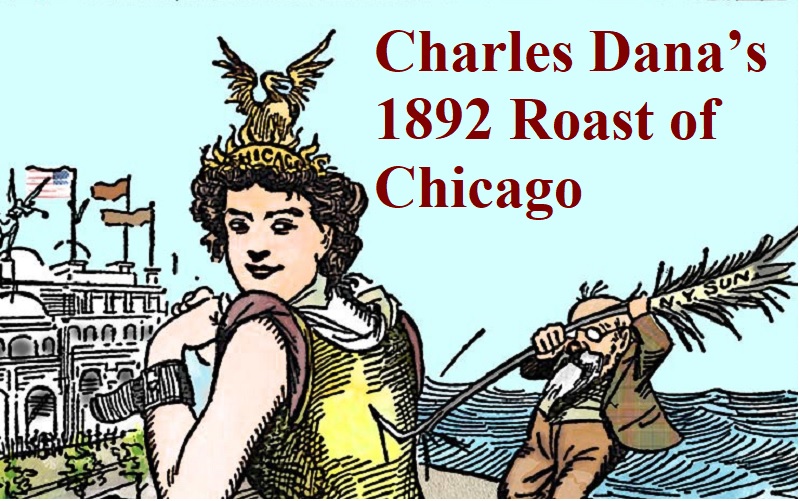
A year before the gates of the 1893 World’s Fair opened, a New York newspaper attempted to burn the host city of Chicago. Having rebounded from the Great Fire of 1871, the Windy City easily extinguished the malicious editorial roast.
The May 29, 1892, issue of New York Sun contained a nearly full-page invective titled “Chicago As Chicago Is.” Although the piece was signed “THE PICADOR” (a bullfighter on horseback who wounds his target), news outlets attributed this diatribe directly to the Sun’s editor and owner, Charles Dana.
Since the spring of 1890, when young Chicago defeated old New York in the national bid to host the World’s Columbian Exposition, the eastern establishment had been hurling insults at the audacious Midwestern rival. Chief among the clamorous carpers was Charles Anderson Dana, who took over the New York Sun in 1868 and ran the paper until his death in 1897.
Across the pages of the Sun, Dana regularly splattered invectives against Chicago as she prepared to host the world for the Columbian Exposition. Of one particular insult, however, he seems to be wrongly accused. That Charles Dana invented the phrase “Windy City” to describe Chicago’s boastful talk about the Exposition is a persistent myth, reprinted countless times despite the fact that his quote has never been found in print and that the expression was used by others well before the time of the World’s Fair. [See David Wilton’s Word Myths: Debunking Linguistic Urban Legends (Oxford University Press, 2008) for a thorough debunking.]
“Chicago As Chicago Is” oozes with petty jealousy. The tirade is (to borrow the author’s own expression) “an apparently unending procession of Hate and Weariness and Angry Discontent.” The piece hurls insult after insult at every aspect of Chicago: its air, soil, and Midwest people; the waters of Lake Michigan and the Chicago River; the city’s architecture, trains, theater, and food; the business of men and the appearance of women. He even insults the smoke. His final section, in which attack immigrants with particularly nasty slurs and stereotypes, is too ugly to reprint so we have omitted those thirteen paragraphs.
We reprint this editorial, subtitled “Impartial Observations of a Man Who Can See and Smell,” for amusement only. The piece stubbornly avoids facts. As always, we alert readers that this historical writing contains descriptions that are racist, xenophobic, classist, and sexist. Following the serialization will be several contemporary responses to it from Chicago periodicals.
[Editorial note: Section and subsection headers have been added and a few minor misspellings have been corrected.]
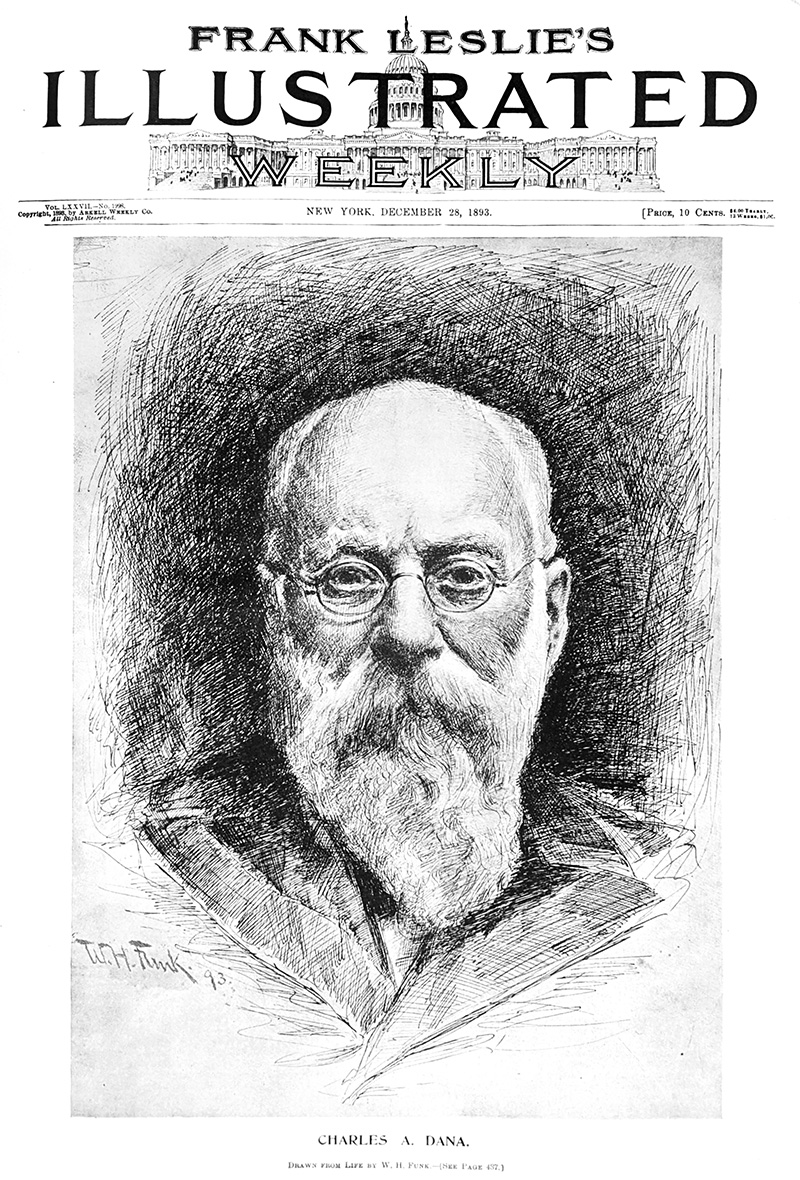
Charles A. Dana of the New York Sun, as depicted on the cover of Frank Leslie’s Illustrated, December 28, 1893.
CHICAGO AS CHICAGO IS
Impartial Observations of a Man Who Can See and Smell
CHICAGO, May 27—After passing Pittsburgh the Chicago-bound railway passenger is suddenly oppressed by a vague, inexplicable dejection. The air becomes not exactly insipid, but begins to taste brackish. It is no longer keen and stimulating, like the atmosphere which accompanied him from the seaboard. On the contrary, it leaves a soft, vexatious savor in the mouth and fills the lungs without satisfying them.
The strong airs of New York and Pennsylvania come no further westward than the Alleghenies.
There is nothing to raise one’s spirits in the views which whirl by the car window. They are not of a character to exalt or to exhilarate. A farmer, measuring them economically, may delight to see a country so flat and easily arable, but anybody else the monotony of the inundulating meadow land, made up of one dull field multiplied, apparently, ad infinitum, afflicts with over-deepening gloom.
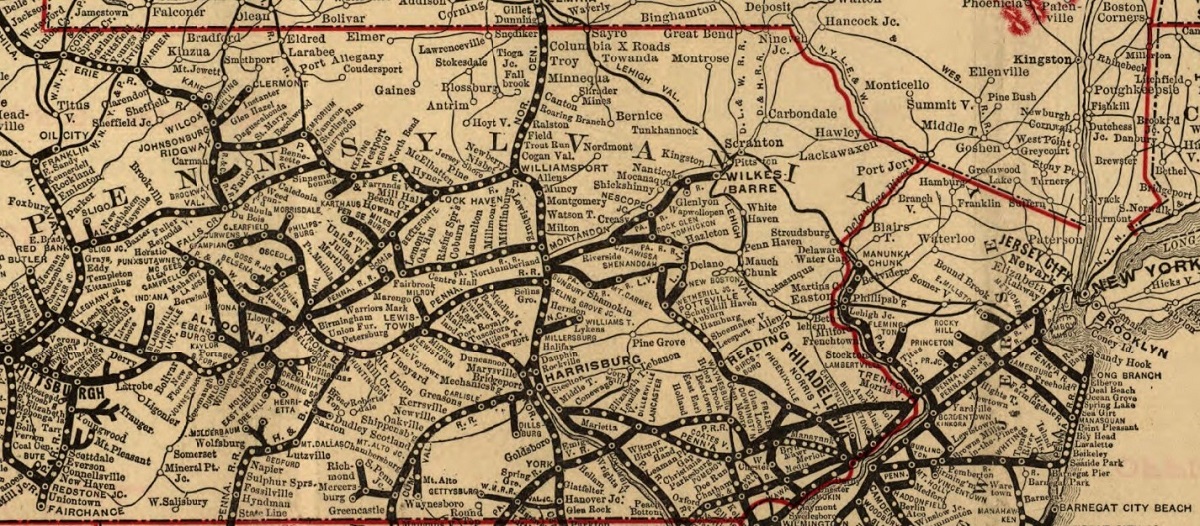
A “vague, inexplicable dejection” after passing Pittsburg [sp], shown on this 1893 Pennsylvania Railroad Map. [Image from the Library of Congress.]
Ill-bred, lean, and vastly inferior in substance
Of the cities through which the train passes, all, without exception, prefigure the hideous climax which one eventually encounters in Chicago itself. They are made up simply of grim and conventional human habitations, in which men and women only cook and eat and sleep, but never imagine or rejoice. The only alleviation of their utter dreariness is the Catholic churches. In nearly every town strewn along the Pennsylvania Railroad’s route to Chicago one descries with gratitude and admiration some Gothic structures, usually of brown or gray stone, on the uppermost spire of which gleams in the setting sun the symbol of Christianity. There is no need to inquire what denomination it is that combines religion with architectural delight.
Tired people, overworked and looking underfed, watch the flying train as languidly as their cattle do. It is another strange fact that all the brutes one sees in this pastoral country through which we shoot Chicagoward, are ill-bred, lean, and vastly inferior in substance and quality to the well-born, well-nourished herds that devour the Eastern grasses. One finds it hard to disentangle a plausible pedigree for any one of them out of the muddle of strains. There is a hint of the Frisian, a reminiscence of the Alderney, something to suggest the long-backed Ayrshire, something to burlesque the nimble Kerry; but, on the whole, a vulgar preponderance of beasts like those of the Apocalypse, all head and horn and bony hip, whose backs dip like those of saddle horses, and whose muzzles and hides betray a most ignoble aberration from all accepted types.
The horses, too, are weedy and leggy. They are like the chaotic world, without form and void. Long thin necks, heavy coffin-heads, mulish ears, and an exasperating “ordinariness” of color give them an air against which no hippophile can help protesting.
To sum up, racing from Pittsburgh further and further westward, one is more depressed by tiresome, unbeautiful landscapes, occupied either by degenerate animals or by commonplace and dismal towns.
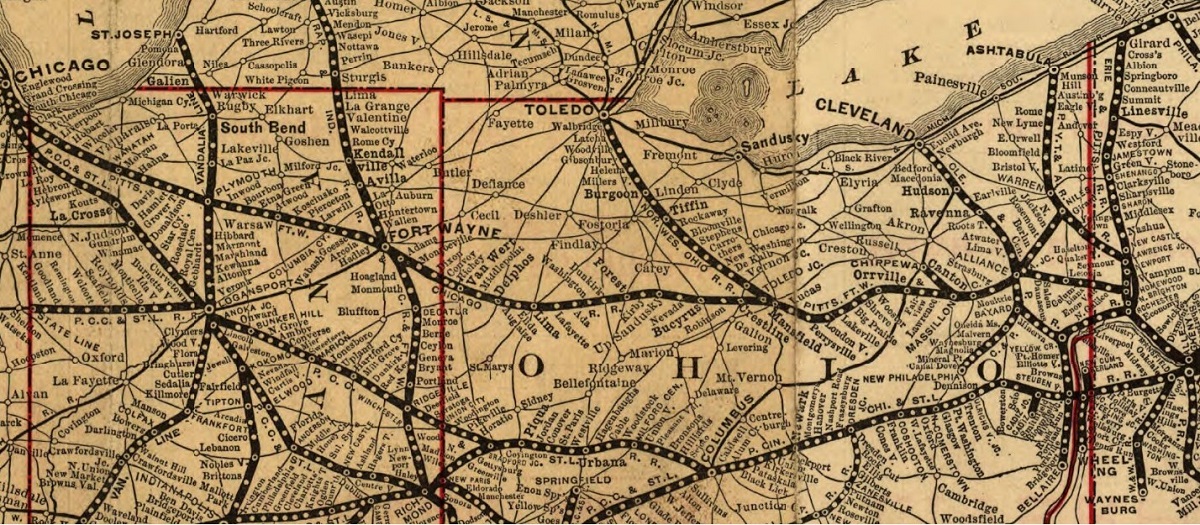
The stretch of “tiresome, unbeautiful landscapes” from Pittsburgh to Chicago, shown on this 1893 Pennsylvania Railroad Map. [Image from the Library of Congress.]
Perpetual vistas of gloom and disappointment
It is, however, on the Illinois side of the Indiana boundary that the traveller, steaming to Chicago late in the afternoon, perceives most acutely the difference between the scenery he has abandoned in the East and that of the Central States into which he has already entered. A dreadful nostalgia overpowers the most insensible of men when he first begins the transit of the Kankakee meadows. The flat, mushy ground is dotted with melancholy pools. The trees are sad and stunted. A feeling of hopelessness displaces the ardor with which he began his journey in Jersey City. If he looks out on either hand, he sees perpetual vistas of gloom and disappointment. He suspects, with reason, that he is passing out of the zone of civilization, out of the nineteenth century, into an unfinished country, into a country possibly on the eve of geologic change, but beneath the oozy surface of which monsters, elsewhere palezoic, have only recently subsided. It is not hard for him, if it be a yellow and gray afternoon, to imagine that he has slipped backward, chronologically, and that the roar of his train jars great saurians dozing in the mud. Let him still further indulge his fancy, and he becomes still more uncomfortable. The dreary, desolate, hopeless horizon which encircles him is lurid with the sickly glare of nature’s primeval thaumaturgy. He gets afraid that he is about to see, against his will, just how the monstrous fabrication of the world began.
It is an alarming prospect. It appalls him, and he looks eagerly beyond the tree tops with a hope of seeing Chicago somewhere.
He does not see Chicago, however, for Chicago is not yet in sight, and will not be for some considerable time. But brooding over the furthest hilltops like a scowl upon the brass visage of the sky, he observes a huge bank of smoke. Capnologists, identifying it as smoke, with one consent abandon the task of defining what kind of smoke it is, or how many kinds of smoke it induces. There is something about it, even at a distance of twenty miles, which plainly distinguishes it from the good honest fume breathed by other than Chicago furnaces. It has a baleful, malefic look, even at that distance. It darkens the whole prospect. The ugly pools that gleamed in the sunset are eclipsed by its shadow. That shadow impends over the monotonous prairie and darkens it.
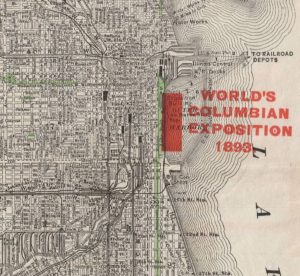
The “baleful, malefic look” of downtown Chicago, where Lake Front Park was considered as a potential site for the 1893 World’s Columbian Exposition, as shown on this 1890 map from Rand McNally & Company.
An unnatural monstrous twilight
There are moments when the reek of Vesuvius oppresses the vineyards at his feet with a hideous gloom and makes them infernal. Just such an unnatural monstrous twilight hangs over the approach to Chicago.
In time, happily, the Kankakee meadows begin to cease. The sullen pools. Cyclopean eyes peering up at the smoke cloud disappear. The rusty herbage gives place to incessant bayous and lakelets. Trees that have evidently died of some malignant disease stand stark and dead and skeleton-like up to their middles in all these meres. Paludial birds drift awkwardly across the sky. The citizen frogs, met in convention, fill the air and drown the roar and rattle of the train with their vociferations.
The sky is of pale blue, the pale blue tint with green they call robin’s egg. Suddenly the horizon on the right ceases to be a fringe of tree tops. It becomes a stain of watered indigo, out of which the strength has faded.
There are huge drifting streaks between the edge of the indigo and the zenith. The pale sky is defiled by a foul haze which seems to be the breath of some diabolic thing lurking in space beneath it.
That sullen, disappointing patch is the Lake.
And the Lake is the bound, the excuse, the parent of Chicago.
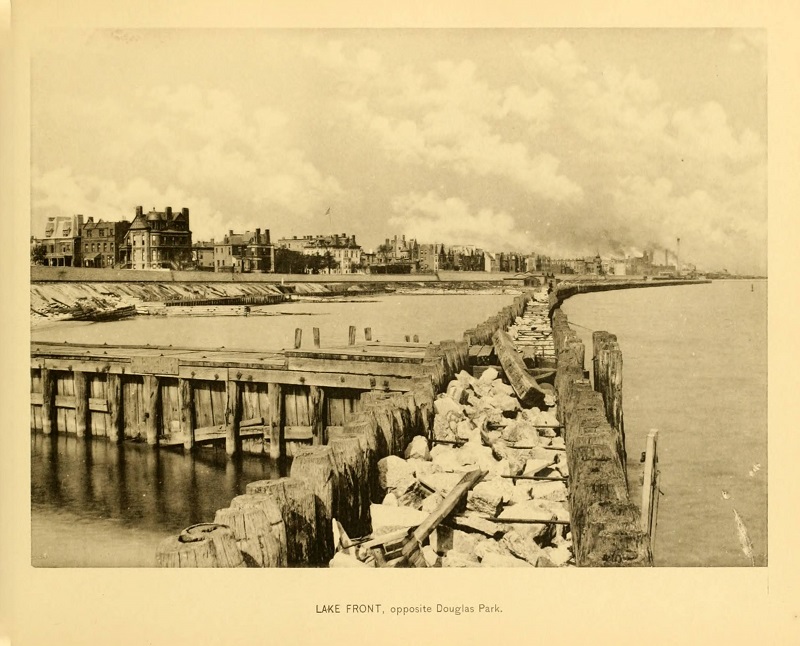
That “sullen, disappointing patch” of Lake Michigan, the shore line opposite the Stephen Douglas Monument Park on the near South Side. [Image from Wittemann, A. Views of Chicago. A. Wittemann, 1892.]
Eagerly absorbs the muck of Chicago
It is the Lake which years ago gave birth to Chicago, and now wallows at the feet of its offspring, filthily content to be polluted by her scourings.
There is possibly but one passenger on the train who sees this image of outraged and insulted maternity in the Lake, already visible, which eagerly absorbs the muck of Chicago, still unseen.
Most of those who have never before set eyes on it loudly express their disappointment. They are Europeans among them who were prepared to contrast it with their recollections of Geneva or Luzerne or the Lago Maggiore. To them it is really worse than a disappointment. It is a sneer, an impudent affront, this waste of unbounded, untroubled waters which has neither temper nor tone, which lacks the thunders and the spray of the ocean, which in anger screams with a petulancy none the more dignified because it is often fatal.
The first sight of the sea bursts upon one at the same moment with the first swell of it. They travel in company, and they both together fill the coldest heart with exultation, the sight, the swell to which Xenophon’s gladdened Greeks shouted back their “Thalatta!”
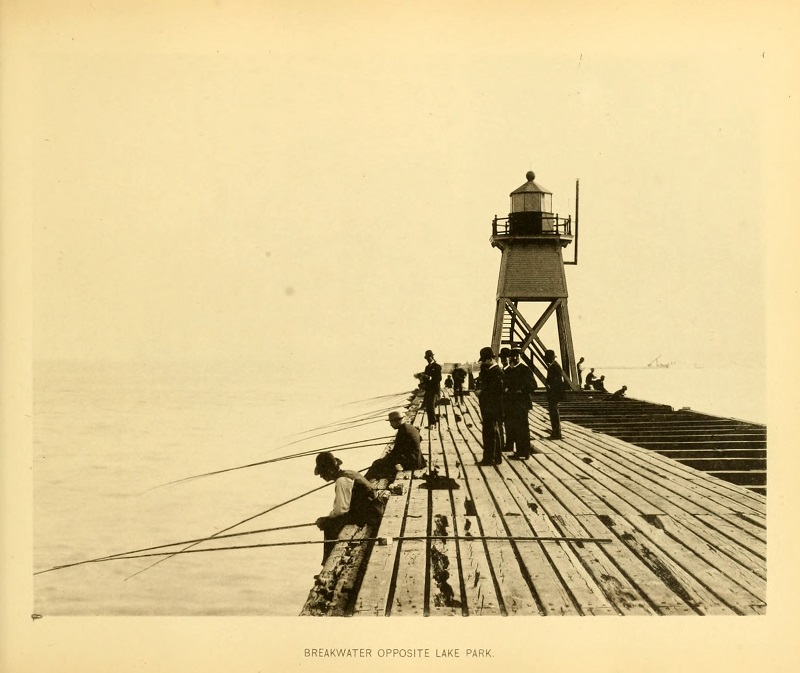
An “impudent affront.” Fishing in Lake Michigan from the pier opposite Lake Park in downtown Chicago. [Image from Wittemann, A. Views of Chicago. A. Wittemann, 1892.]
A ghastly stretch of lifeless and insipid water
But if the first sight of the Lake disappoints, the first smell of it exasperates. The one begets resentment, the other disgust. There is no cheer in it, no invigoration, no unspoken yet none the less cordial welcome: nothing except repulsion.
On the contrary, you wonder with dismay what kind of people can they be who live the other side of that melancholy waste, and you shudder at the thought of crossing it, even on the wings of fancy, to find out.
Lake Michigan is a ghastly stretch of lifeless and insipid water. Its rages are the spasmodic contortions of a corpse tormented into life-like motion by the caprices of an electric battery. It is the playground of fierce storms, but it breeds none. It never becomes part of a hurricane as the sea does, but only the implement of one.
The ocean has an immense soul. The Lake has nothing but uncountable, immeasurable gallons of green water that tastes bad, and, at times, becomes dangerous either to drink or to float upon.
The worst wrongs of all are inflicted by Lake Michigan upon the eyes. It denies you all sense of distance. Its atmosphere softens nothing. It is true that very frequently rolls of floating carbon make a black fog on its surface, and shut out the prospect. But this curtain of smoke is sometimes drawn, and then you see the Lake naked and gaunt. You see all of it at once. You shrink from calculating how far off the outer edge may be, but you do not care if is, as it looks, only ten blocks distant. Nothing in the word would induce you to traverse the distance. There is no telling what monstrous horrors, what fantastic unrealities exist beyond the pale blue verge. It is bad enough where you are. It is most likely ten times more hideous the other side of the bourne.
All the time that at least one passenger is thus considering, the train roars and rattles deeper and deeper into the wilderness of trees that are dead and waves that are stagnant. You look to the right. There you see the Lake parted from you by a space of sand, offal-strewn. You look to the left. You see, beyond the bayous and the fen, green fields and tree tops. Then in your impatience you ask: “How soon before we get to Chicago?” and everybody who knows replies at once:
“This is Chicago!”
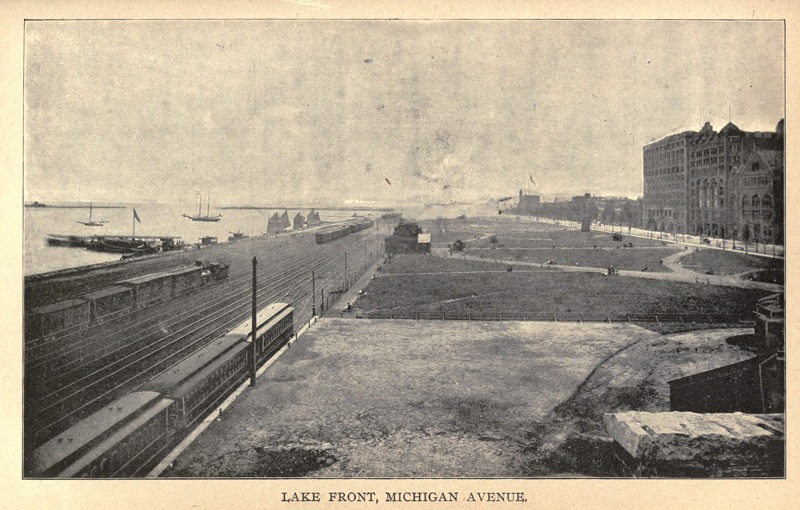
Visitors reaching Chicago view “nothing except repulsion” looking south along the lake front beside Michigan Avenue. [Image from Pierce, James Wilson Photographic History of the World’s Fair and Sketch of the City of Chicago: A Guide to the World’s Fair and Chicago. Lennox Publishing Co., 1893.]
That stretch of filthy sand is Chicago
Yes! This is Chicago, already Chicago! These swamps and fens and rotten trees and rush-edged sloughs are Chicago! That stretch of filthy sand is Chicago. That lowering bank of smoke solidified is Chicago.
The frogs that croak in the dark mysteries of yonder bayou have a voice, the voice of an Alderman in the Common Council of Chicago. Those tottering trunks, water-soaked and rotten, bow to the rule of the Mayor of Chicago. The bitterns that mourn in the jungle; the tern that fleetly dodge the engine; the mud-puffles that burrow in the banks of the creeks; the muskrats that flash in the pools; the snipe that flits across the open; the snake that wriggles his way through moist underbrush; they are all citizens of no mean city, citizens of Chicago.
To animated nature, burrowing, bellowing, croaking, creeping, whizzing, wriggling, writhing, dodging, flying, flatting, hissing, whistling: to animated nature seen, unseen, and obscene in these decomposing wastes, I lift my hat politely, for thus, in her outskirts, do I salute Chicago!
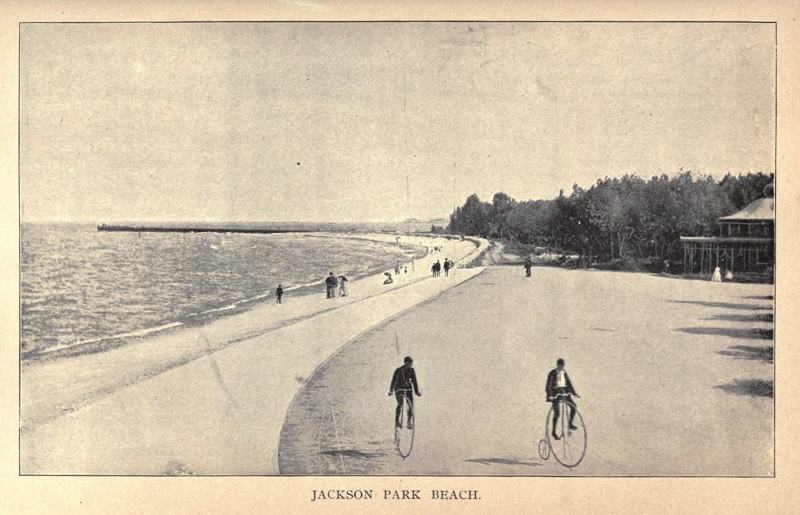
A “stretch of filthy sand” along Jackson Park Beach on the South Side of Chicago. [Image from Pierce, James Wilson Photographic History of the World’s Fair and Sketch of the City of Chicago: A Guide to the World’s Fair and Chicago. Lennox Publishing Co., 1893.]
Emerging from a belt a nightmares
It is ten minutes’ run through submerged and malarial Chicago before we reach the district in which her municipal humanity displaces her municipal reptiles. The fact that we are getting into a zone of realities and emerging from a belt a nightmares is made patent by the great number of railroad tracks which converge on all sides of us. Trains of all kinds, passenger trains, freight trains, mixed trains, are gliding up and down on either hand. The air is almost unbreathable for the fumes of their engines. Grim and grimy figures mount guard at crossings, the watchmen, as it appears, of the infernal. We are going deeper and deeper into the smoke bank, cheap and gloomy houses of wood, spawned like rank toadstools out of the dark, wet soil, surrounding and growing thicker as we proceed. The sky line is broken by black chimneys belching blacker smoke. The firmament looks like part of the earth upside down. You think the tree ought to be growing topsy-turvy, with their roots deep in those rich undulations of carbon.
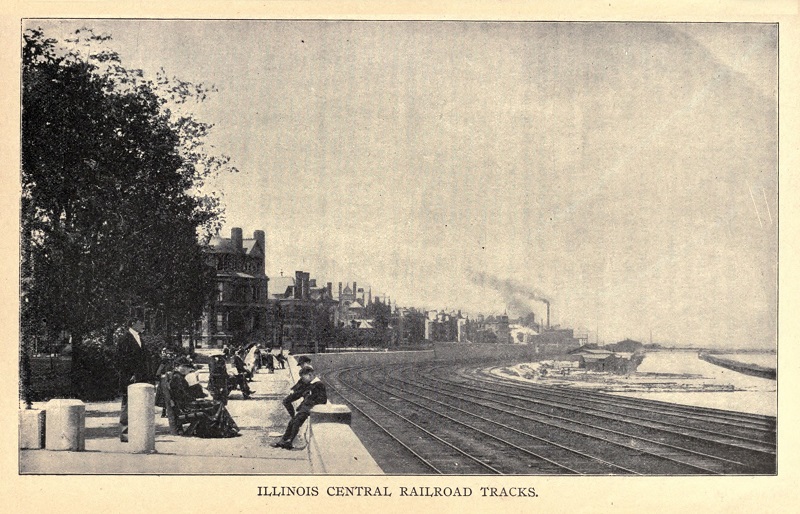
Passing a “belt a nightmares” as the Illinois Central Railroad tracks head into Chicago. [Image from Pierce, James Wilson Photographic History of the World’s Fair and Sketch of the City of Chicago: A Guide to the World’s Fair and Chicago. Lennox Publishing Co., 1893.]
Saturated with a horrible sadness
A bird soaring high must surely run a risk of bumping himself against the solid exhalations of Chicago.
The cinders rain down perpetually. It is like the deposit of its ashes by the Peak of Tenerife.
You are saturated with a horrible sadness. There comes over you a mournful fear that you have parted forever with the sun. Hereafter it will never be day any more. You must be content to live in a perpetual Teuffeldämmerung, cursed and forgotten by the gods, one of nature’s outlaws, sentenced, perhaps, to be accommodated by blindness to your surroundings, like the eyeless fishes that live in the dark of the Mammoth Cave.
Everything is brown and smells of bitumen. Mummies might be benefitted by the acrid fumigation, human beings unacclimated weep and snuffle in unending protest. The air is full of falling, drifting flakes and scales of soft coal. And yet the tantalizing deposit hangs suspended about the nose high. It seldom sheds itself in a final shower to thus relieve the breathing.
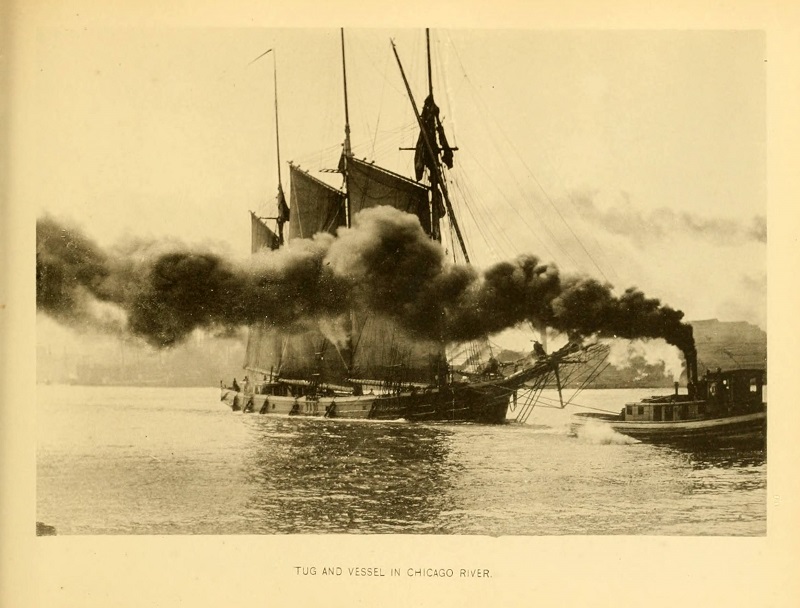
“Acrid fumigation” coming from a tug pulling a vessel through Chicago waters. [Image from Wittemann, A. Views of Chicago. A. Wittemann, 1892.]
A devil’s custard
It is in this atmosphere that we arrive somewhat below the street level, and, halting in a spacious station, alight at the end of our journey. The last beams of the descending sun light up the depressing scene. The station yard is full of trains, bright with paint when seen elsewhere, but here inexpressibly dingy. The universal haze of reek darkens everything and wipes out all color. Freight cars abound. Elevators uplift their grimy towers all around us. A huge ditch yawns hard by. Its contents are of an indescribable chocolate, suffused with green, and shot with an unctuous purple. The odor of it is not to be described. Throw a stone into it, and the concentric rings spread slowly and sullenly, exhaling, each ring, a new and horrible stench. As the bubbles burst, like beads on a witch’s oils, each minute explosion liberates a fetor that speaks eloquently of the nature of the bed of the ditch, and of the chemistry of decomposition which goes on beneath that stagnant, immobile surface.
You wonder, hastily, why this sullen miasmatic drain is not filled up. Then you see a dirty bridge revolving sulkily on its pivot to allow the passage of a still dirtier tug, out of every orifice of which pours a choking flood of carbonized bitumen. The churning of the screws whips the contents of the ditch into a devil’s custard, and its lacerated bed gives up its horrors in hideous resentment that its slumbers should ever have been disturbed.
Then you become aware of even dirtier schooners, with long naked masts and no visible sails, bound by rusty chains to rotting wharves; and you realize that all this displeasing spectacle is the River.
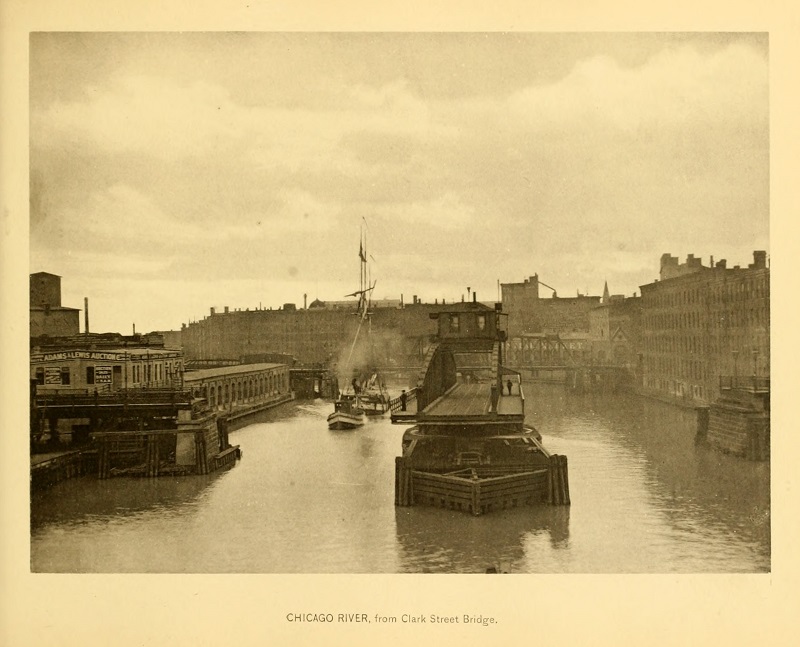
A “dirty bridge revolving sulkily on its pivot.” The Chicago River from the Clark Street Bridge. [Image from Wittemann, A. Views of Chicago. A. Wittemann, 1892.]
The buoyant filth of the Chicago River
You have heard a great deal of the River. You arrive at its unhallowed bank with an idea that it compares in extent of commerce and traffic with the Mersey, the Thames, with the North River of New York, the Delaware of Philadelphia.
You see this noisome canal, across which a ten-year-old boy could easily flip a pebble. There is hardly any disturbance of the films which overlap each other on its surface. The passage of craft is infrequent. A few lumber-laden scows are occasionally towed up it. But the very large tugs loathe the necessity which once in a while impels them to ascend its syrup-heavy branches. Such water traffic as survives in Chicago huddles up nowadays by the Government pier, in what is known as the harbor. It is hard to imagine how anybody can live aboard a vessel floating on the buoyant filth of the Chicago River.
Its specific gravity, for sinister reasons, must be greater than that of Lake Deseret or the Dead Sea, Surely it is a feat of desperate physical strength to drown oneself in such a resistant fluid. It can only be of service to the man who contemplates suicide by inhalation or asphyxia. And yet here and there one sees a hopeless and filthy boy squatted on a timber who angles, perpetually disappointed, in this indescribable creek!
As well go fishing in a sewer!
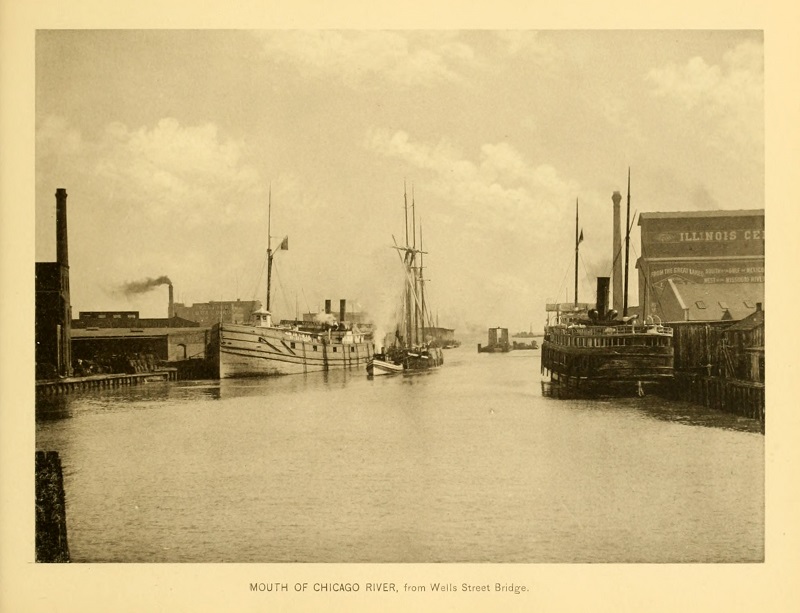
This “indescribable creek” at the mouth of Chicago River, from the Wells Street Bridge. [Image from Wittemann, A. Views of Chicago. A. Wittemann, 1892.]
Shabby and dirty and provincial to an extreme
Your next surprise is at the quality of the vehicles which haunt the railroad station. You are prepared for metropolitan elegance and luxury. You have been vaguely promised at least the conveniences which await travelers on their arrival in New York. Instead you encounter battered hackney coaches and broken-down cabs which would be rejected by Newark or by Peoria. Everything is shabby and dirty and provincial to an extreme. The hackmen are of the lowest conceivable order. They recall an era which in New York has become historical. They are uncouth, profane, unclean, and insolent. They are astonishingly ignorant of the topography of the city in which they depredate. It seems that everybody who arrives in Chicago goes to one or other of its hotels.
Any address outside of these hotels the Chicago hackmen, as a rule, ignore. They cannot understand an order which impels them to a private residence, on any street. They are sure to deny the existence of such a street, and, under coercion, to spend the remainder of the day in trying to avoid it.
Most of them are unaware, even, of the existence of the smaller hotels. They never heard of them, decline to believe that anybody else ever heard of them.
In stupidity, the Chicago hackman is an equivalent of the istvostchik of St. Petersburg; in respect to manners, it would be an outrage on the Russian to compare them.
Continued in Part 2 …
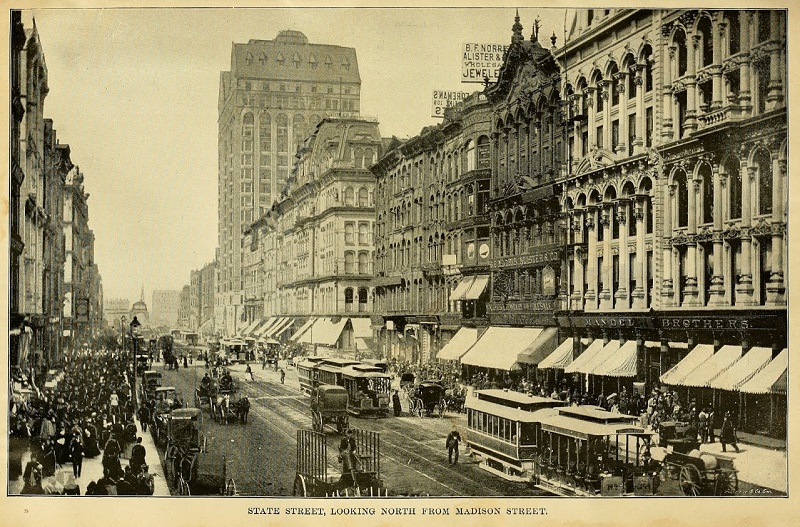
Cabs driven by the “uncouth, profane, unclean, and insolent” along State Street north from Madison Street. [Image from Artistic Guide to Chicago and the World’s Columbian Exposition. R.S. Peale, 1891.]
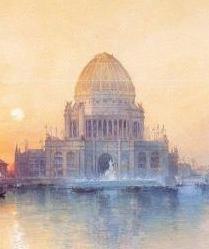
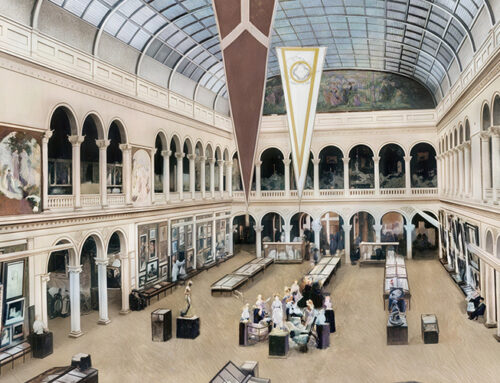
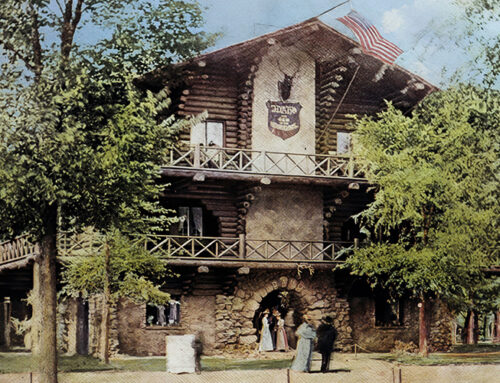
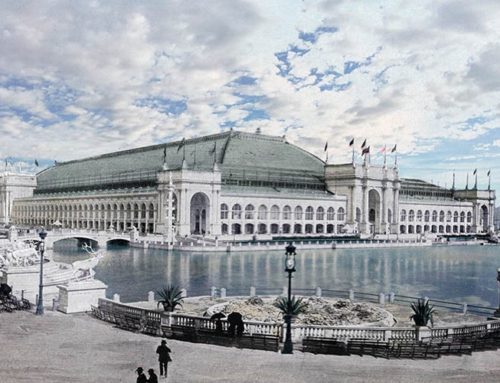
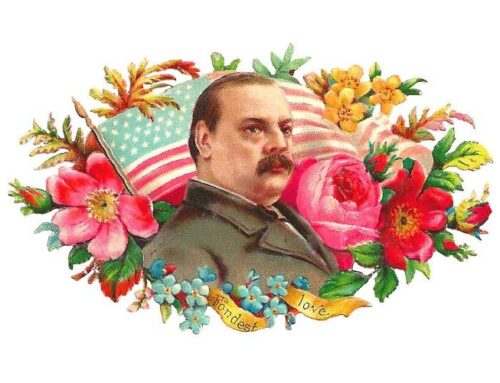
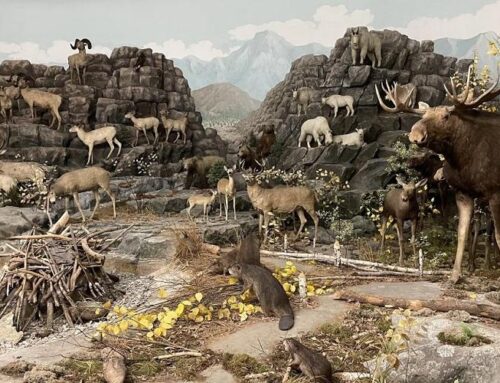
Leave A Comment